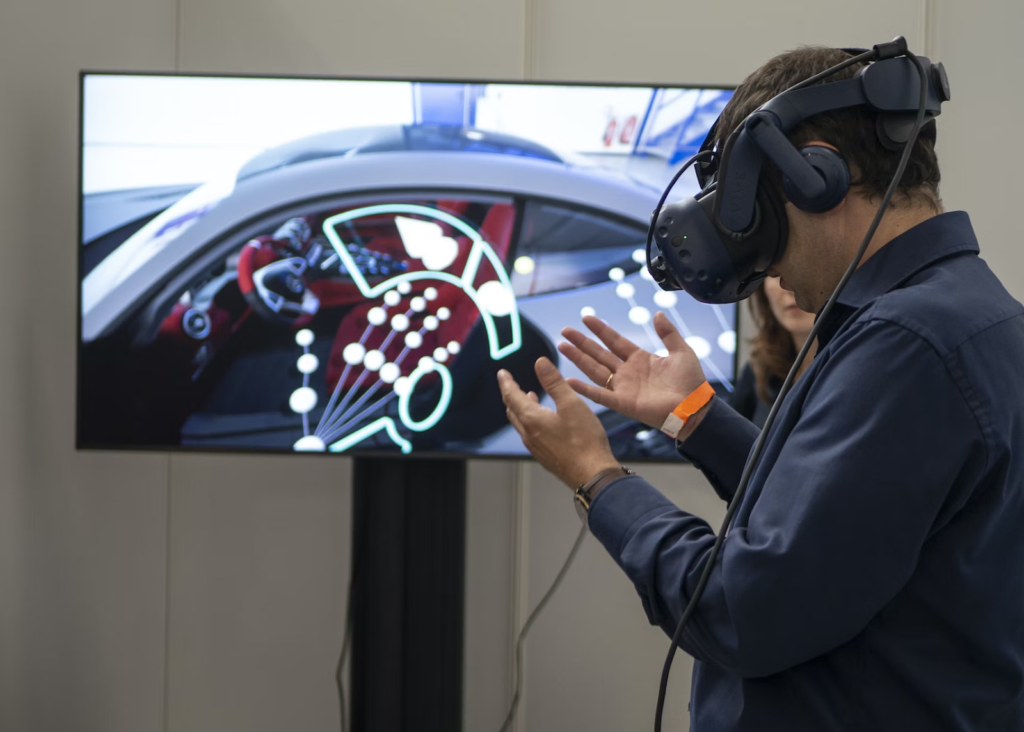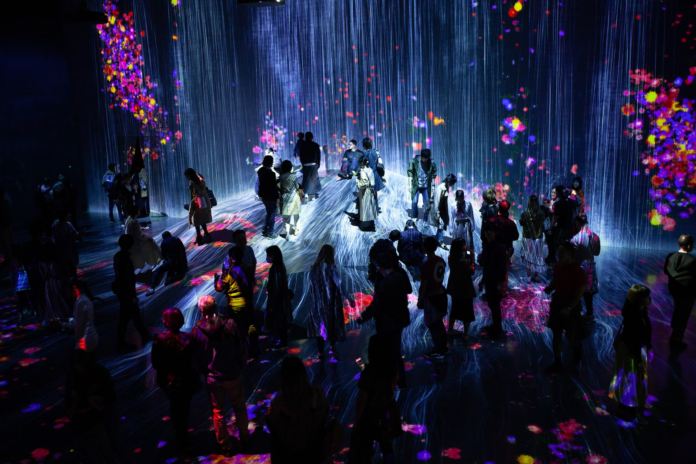In the digital age, where technology continually pushes the boundaries of what is possible, a new form of entertainment has emerged: immersive events. These transformative experiences transport participants into alternate realities, blurring the lines between the physical and digital worlds. Whether it’s a virtual reality (VR) conference, an augmented reality (AR) art exhibition, projection mapping, or a mixed reality (MR) music festival, immersive events are revolutionizing the way we engage with entertainment, education, and even social interactions.
Immersive Technology and Its Impact
Immersive technology encompasses a range of cutting-edge technologies that create realistic and engaging experiences. Virtual reality, for instance, immerses users in a completely digital environment through a head-mounted display, allowing them to interact with the virtual world in a seemingly tangible way. Augmented reality, on the other hand, overlays digital content in the real world, enriching our perception of the physical environment. Mixed reality combines virtual and physical elements, enabling users to interact with both simultaneously.
These immersive technologies have paved the way for a new wave of events that transport participants to captivating realms beyond their everyday lives. By breaking down the barriers of time, space, and physical limitations, immersive events redefine the possibilities of human experience, captivating audiences like never before.
Transforming Entertainment
Immersive events have breathed new life into the entertainment industry. Traditional concerts and performances can now be transformed into multisensory spectacles where attendees become active participants. Imagine attending a music festival where you can interact with holographic performers, dance alongside virtual avatars, and experience mind-bending visual effects. Immersive events provide an opportunity for artists and creators to push the boundaries of their craft, delivering unforgettable experiences that blur the line between fiction and reality.
Revolutionizing Education
Education is another domain that stands to benefit greatly from immersive events. With virtual and augmented reality, students can explore historical events firsthand, dissect complex scientific concepts in a simulated laboratory, or immerse themselves in interactive language learning environments. These immersive educational experiences foster engagement, curiosity, and deep understanding, offering a transformative alternative to traditional classroom instruction. By placing learners at the center of the action, immersive events have the potential to revolutionize the way we educate future generations.

Enhancing Social Interactions
In a world increasingly dominated by social media and digital communication, immersive events provide a refreshing way to connect with others on a deeper level. Attendees can come together physically or virtually to share immersive experiences, creating meaningful memories and fostering a sense of community. Virtual conferences and gatherings enable individuals from around the world to connect in a shared virtual space, transcending geographical boundaries. Immersive events also offer opportunities for networking and collaboration, providing a platform for professionals to engage with industry leaders and expand their horizons.
Challenges and Considerations
While the rise of immersive events is undoubtedly exciting, it also poses certain challenges and considerations. First and foremost is the issue of accessibility. Immersive technologies can be expensive and require specialized equipment, limiting their reach to those who can afford it. To ensure inclusivity, event organizers and creators must strive to make immersive experiences accessible to a wider audience by exploring more affordable options and leveraging existing technology.
Moreover, there are ethical concerns surrounding privacy and data security in immersive events. As participants engage with these technologies, they may unknowingly share personal information or be exposed to potential risks. To address these concerns, industry leaders need to establish robust privacy frameworks, secure data storage, and transparent user consent practices to safeguard participant rights.
Conclusion
In conclusion, immersive events are reshaping our reality in the digital age. As technology continues to evolve, the potential for transformative experiences only grows. By embracing the possibilities of immersive technology and finding ways to overcome the challenges, we can unlock a future where immersive events become an integral part of our lives, enriching our entertainment, education, and social connections in ways we never thought possible. So, get ready to step into a world of immersive wonders and embark on a journey that will forever change the way you perceive and experience reality.











